Only 25% of Americans think that North Korea agreed to give up nuclear weapons
President Donald Trump can bask – a little – in the afterglow of his summit with North Korean leader Kim Jong-un. The latest Economist/YouGov suggests the public finds the summit a success, though possibly a better one for North Korea than for the United States. The President’s approval rating remains above 40% (41% approve and 48% disapprove), and his approval ratings on handling foreign policy and North Korea specifically improved in the last week.
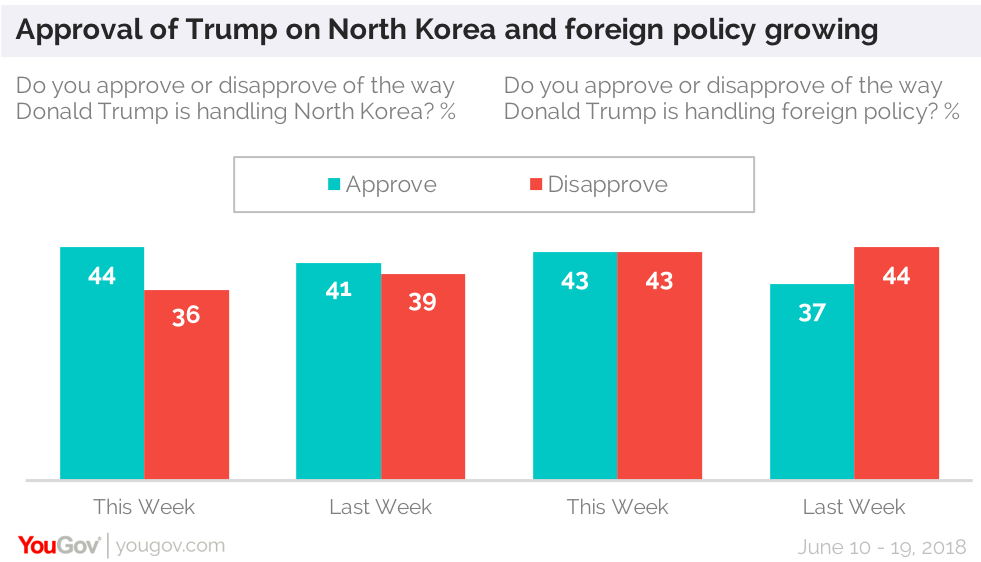
The President’s current approval rating on handling foreign policy is the highest he has received during his entire Presidency. Still, as many people this week disapprove as approve, and there are other international concerns.
There is one more piece of good news in this poll for the President: those who say they are pessimistic about the next few years of a Trump Presidency is at the lowest level ever in the Economist/YouGov Poll. Just 40% are pessimistic, though that is still higher than the 37% who are optimistic. Republicans are responsible for this improvement: eight in ten of them are optimistic today. That is higher than at any point since the first few months of the Administration.
Americans with an opinion judge the summit a success by 35% to 22%, though many still have issues with North Korea. Americans don’t trust Kim: just 9% view him favorably and only 7% as honorable. Americans are just as likely as they were last week to see the Hermit Kingdom’s nuclear program as a serious threat to the United States, and 69% say North Korea is unfriendly to the US or even an enemy of it (though that is down slightly from the 77% who said that last week).
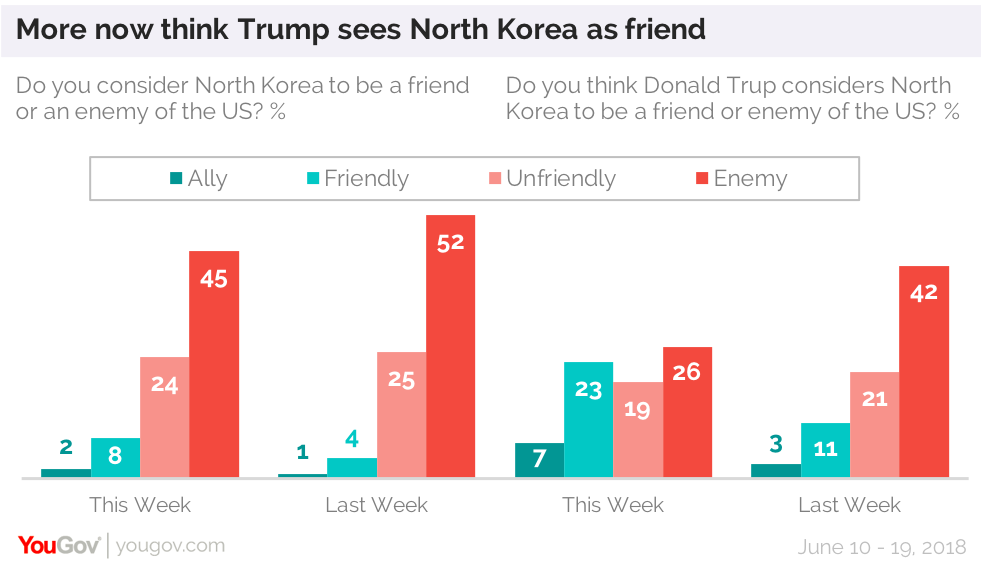
Post-summit, some say President Trump has changed his mind about North Korea, and no longer agrees with most Americans that North Korea is not a friendly nation. Nearly a third, up from 14% last week, believe the President sees North Korea as a friend or ally. Less than half say he sees the Hermit Kingdom as unfriendly or an enemy, down 18 points in a week.
The public is just as likely to view the summit mainly for show as to call it an important step towards peace. But it was less sure about what the United States got: 27% believe North Korea gained more, while 16% said the US had the advantage. Americans do not believe that the United States was successful in getting North Korea to denuclearize, despite the President’s claim that they agreed to do this.
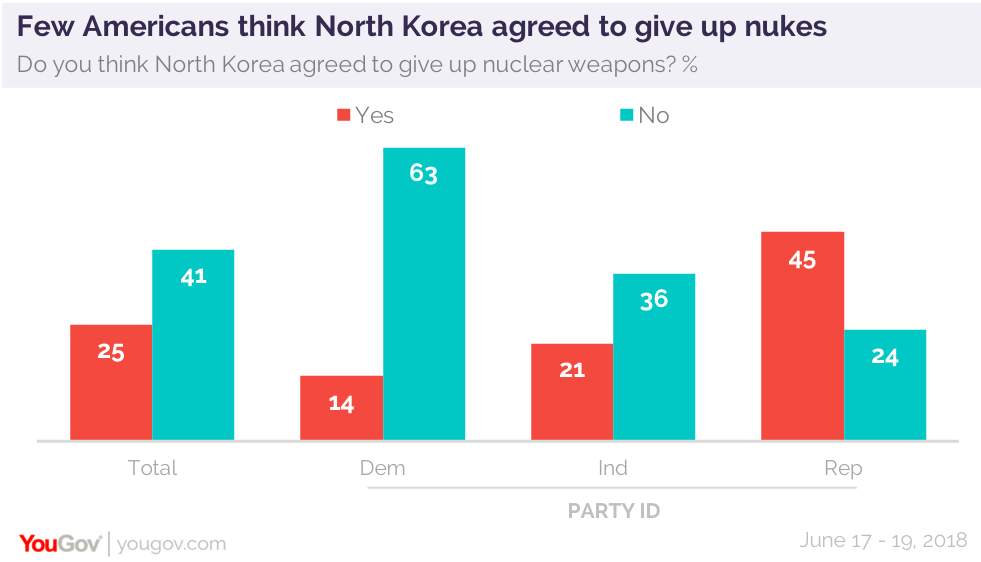
One in four Republicans are dubious. But few expected it would. Prior to the summit, more than two in three Americans said it was not likely that North Korea would give up its nuclear program at the summit.
The public accepts one US decision in the summit, the agreement to stop joint military exercises with South Korea, by 39% to 29%. Republicans are especially positive. They agree with this decision by more than three to one.
In other foreign policy matters…
Last week, at a different summit, the President disagreed with some of the country’s G-7 allies. Afterwards, he criticized Canadian Prime Minister Justin Trudeau. But Americans overall (and Republican as well) remain fans of the US northern neighbor, though they are less sure about the President. 76% of the public believes Canada is a friend or ally; just under half think the President views Canada that way. As for Trudeau, by two to one, Americans have a favorable view of him, though Republicans are evenly divided.
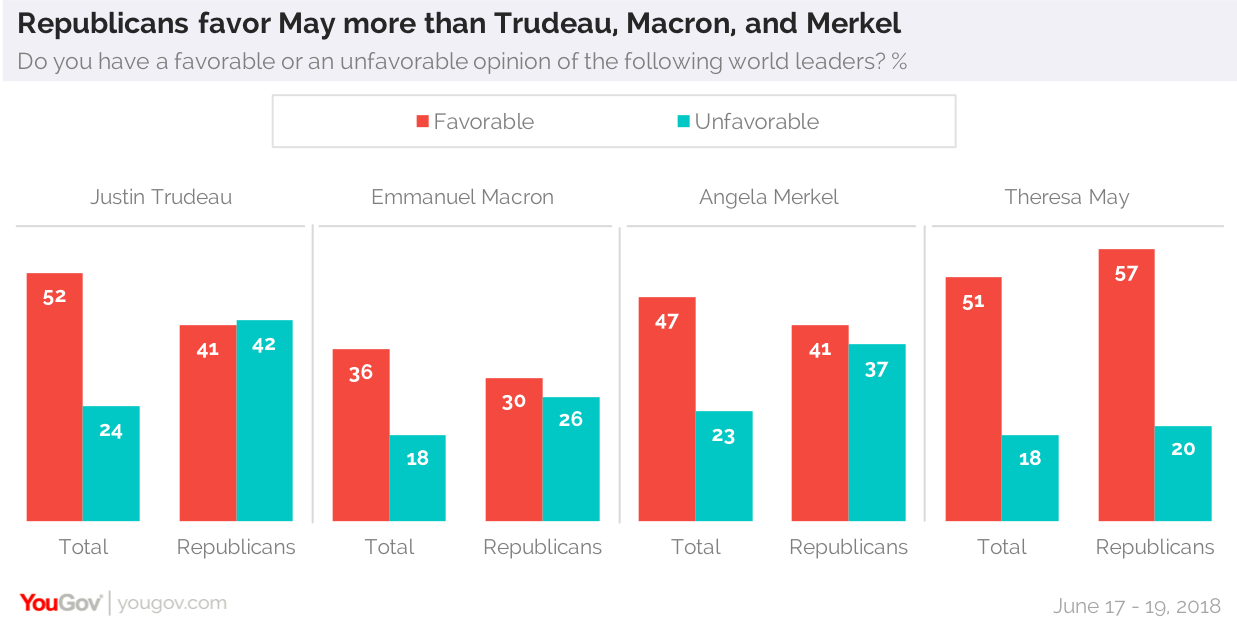
In March, Republicans were also divided on Trudeau. In this week’s poll, Republicans also divide on two other G-7 leaders: French President Emmanuel Macron and German Prime Minister Angela Merkel. They continue to like British Prime Minister Theresa May.
The President has one other international issue to cope with: how to deal with those from other countries crossing the border illegally with their children. The public disapproves, 49% to 42%, on how his is handling immigration in general. They especially disapprove of the policy of separating families. More approve of arresting and jailing those who cross the border, but a majority disapproves of separating families who cross illegally.
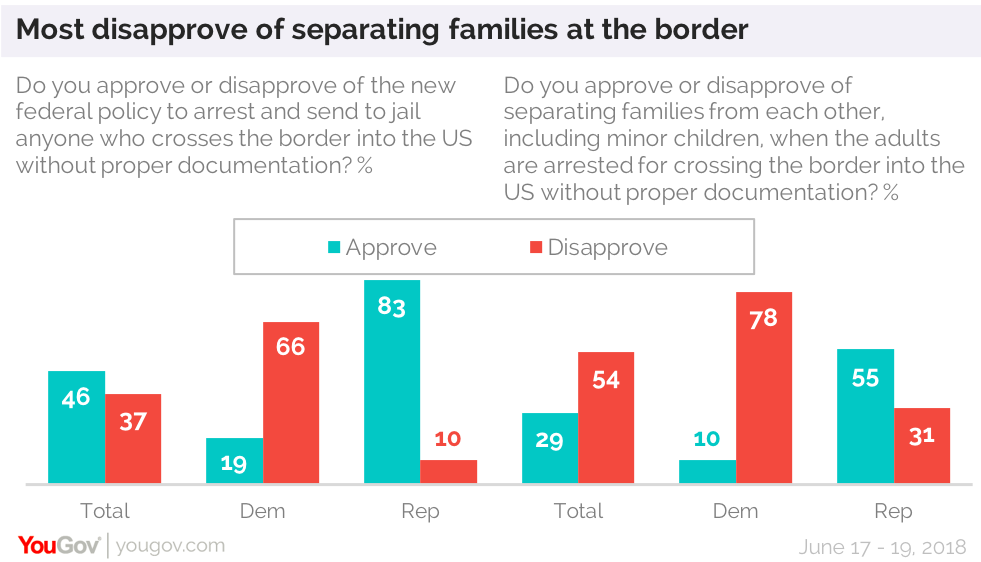
Both of these questions illustrate the partisan gulf on immigration. More than eight in ten Republicans would jail those crossing the border illegally; a majority approves of separating families. Among the 30% overall who strongly approve of jailing illegal border crossers, more than two-thirds would separate children from their parents. In every other category, majorities oppose separating families.
In addition, by more than two to one, Americans see this as a Trump policy, not one (as he has claimed) that can be blamed on Democrats. By two to one, Republicans side with the President.
Read more topline and tables results here.
Photo: Getty











